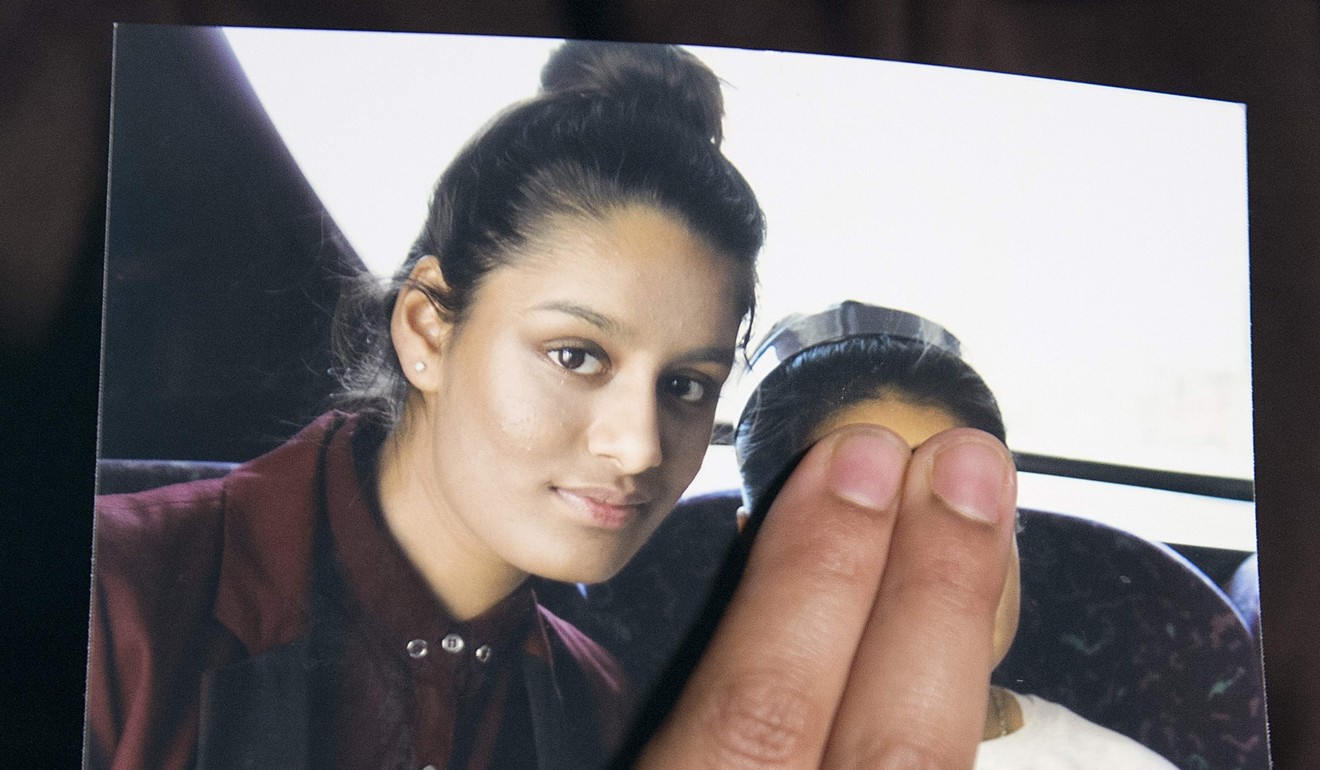
Islamist extremism ‘chronic and pernicious’ issue in Britain
- UK’s lead commissioner for countering extremism says she is concerned about hundreds of young Muslims leaving the country to fight for Islamic State
Islamist extremism is a “chronic and pernicious” issue that has persisted in the UK for decades with hundreds of young Muslims leaving the country to fight for Islamic State (IS), according to the lead commissioner for countering extremism.
The comments from Sara Khan came as debate continues about whether 19-year-old Shamima Begum, a teenager who travelled to Syria to join IS, should be allowed to return to Britain.

The teenager called on people in the UK to have sympathy for her, the day after giving birth to a boy in a refugee camp. Begum spoke to The Times while still pregnant last week from the al-Hawl refugee camp in north-eastern Syria, saying said she was desperate to come back to the UK.
Khan said more was needed to get to understand the tactics of extremist groups and how they targeted young people such as Begum. She said one challenge was that a lot of extremist content online was seen as lawful.
“Shamima was remorseless in her supporting of [IS],” she said. “I see lots of legal, extremist, radical content online. There is a legitimate question of freedom of speech – we must protect freedom of expression in this country – but I want to see more challenge of extremist beliefs and extremist ideology. We all have a role in that regard. Schools can play an important role in having those conversations … Faith leaders have a role in deconstructing Islamist ideology and beliefs.”

Speaking to Sky News on Sunday while sitting with her baby, Begum said: “I feel a lot of people should have sympathy for me, for everything I’ve been through. You know, I didn’t know what I was getting into when I left.”
Speaking on Radio 4’s Today programme, Khan said she was concerned about what radicalised the teenager and what lessons could be learned about what attracted her to extremist ideas.
I feel a lot of people should have sympathy for me, for everything I’ve been through
“It’s important to understand when she travelled … she was aware of [IS] beheadings and executions … was becoming more religiously inclined. There are questions about how a young girl was exposed to extremist ideology – some online – and what more we can do to counter than ideology.
“What support can we give to families fearing their children are being targeted by Islamist extremists?”
Khan was questioned about the role of Tower Hamlets council, which did not conduct a serious case review on Begum.
“There are far more chronic and pernicious issues. This is not just about [IS] targeting young people. This is about chronic Islamist extremism that has persisted in our country for decades. We saw what happened after 7/7. We have seen the fact hundreds of young Muslims left our country to fight for [IS] … We can talk about those issues and answer those questions but is our response to extremism sufficient? Do we understand the tactics and how young people are targeted?”
Khan said it was important to show young people that if they crossed the line there would be punishments.
“The challenge is that a lot of extremist content seen online is lawful – radicalising, harmful and online … if people are spouting extremist beliefs that does not necessarily mean what doing or saying is illegal.”

